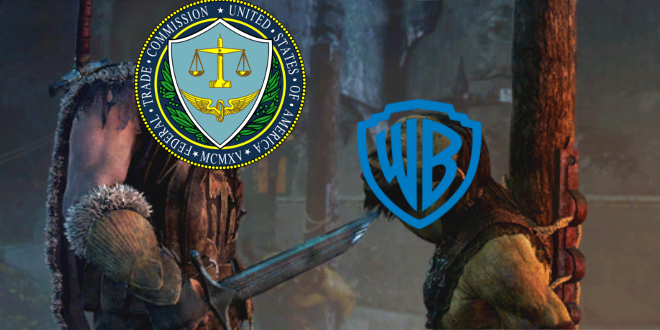Yesterday, it was announced that the Warner Bros. Home Entertainment has settled with the Federal Trade commission for what occurred during the marketing campaign for Middle Earth: Shadow of Mordor. Specifically, Warner Bros. settled with the FTC on the issue of "failing to adequately disclose that it paid online 'influencers.'" These YouTube channels included the 'wildly popular' PewDiePie, with the FTC noting that Warner Bros. paid the aforementioned YouTubers 'thousands of dollars' to post positive sponsored videos, which were viewed over 5.5 million times.
“Consumers have the right to know if reviewers are providing their own opinions or paid sales pitches,” said Jessica Rich, Director of the FTC’s Bureau of Consumer Protection. “Companies like Warner Brothers need to be straight with consumers in their online ad campaigns.”
In FTC's complaint, Warner Bros. paid YouTubers anywhere from hundreds to 'tens of thousands' of dollars, gave them a free copy of Shadow of Mordor before its release, and then told them to promote it in order to help perpetuate their advertising campaign. Furthermore, FTC contends that anything that Warner Bros. told YouTubers not portray their title in an negative light, such as telling the YouTubers to not disclose "bugs or glitches they found."
As seen in PewDiePie's sponsored video, the FTC alleged that Warner Bros. instructed YouTubers to place their disclosures the description box that appeared below the sponsored videos. PewDiePie's sponsored video does have a disclosure, but only if one were to go down to the description and click 'show more' to see the disclaimer, which states that "this video was sponsored by Warner Brother."
The FTC's complaint charged Warner Bros. with misleading customers "by suggesting that the gameplay videos of Shadow of Mordor reflected the independent or objective views of the influencers." FTC further stated in their complaint that Warner Bros. 'failed to disclose' that the YouTubers were paid for their videos that portrayed the title in a positive light.
The proposed settlement has the FTC charging Warner Bros. from 'misrepresenting' a marketing campaign through those such as PewDiePie so that the public would not be misled by those who would otherwise have an impartial opinion. The FTC also charges Warner Bros. to 'clearly and conspicuously disclose' connections between the company and those that are advertising their products in gameplay videos.
The FTC has outlined specific steps that Warner Bros. must follow in the future while conducting marketing campaigns. Such steps include making sure that 'influencers' (such as PewDiePie) are adequately educated on sponsorship disclosures, ensuring that said sponsored videos comply, and in the case of non-compliance, terminate or withhold "payment from influencers or ad agencies for non-compliance."
Update:
PewDiePie has posted a video on the matter expressing his sentimates on the matter and reaffirming that he had disclosed and bringing up the fact that at that point in time the FTC guidelines had not been published regarding clearer disclosure.
https://www.youtube.com/watch?v=9JqJDRkKlt8 Quick Take
Well, this is certainly a welcome sight to see. While Shadow of Mordor was an excellent game, by no means does that excuse Warner Bros. from running a marketing campaign that did its best to mislead potential customers in an extremely unethical way. Hopefully, this ruling ensures that such tactics will not be employed again, although this is most likely wishful thinking. We'll see.
What do you think of this ruling? Let us know in the comments!







